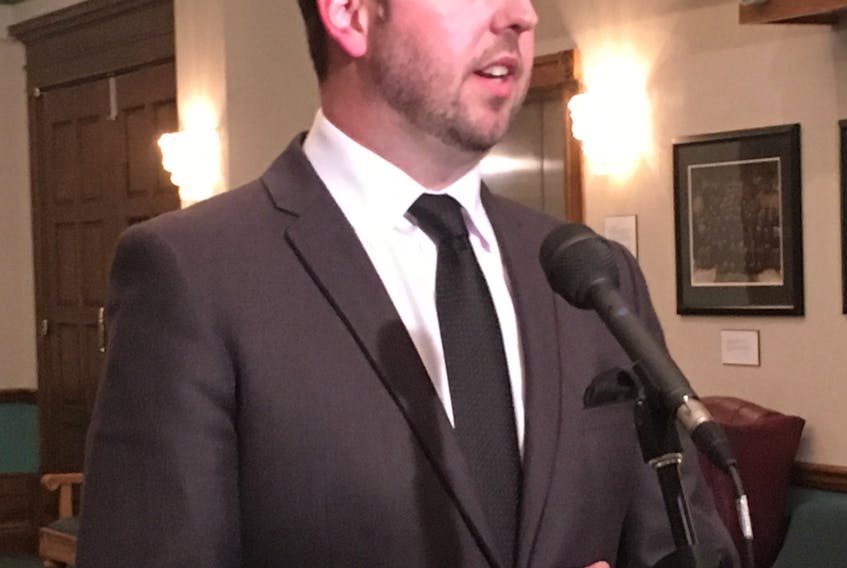Justice Minister Andrew Parsons says the new drug treatment court aims to get people with addictions issues out of the justice system and into treatment.
The province’s first drug treatment court will begin hearing cases on Nov. 30 from provincial court in St. John’s. The first court is part of a three-year pilot project, with hopes to extend the system to the rest of the province in the following years.
“It’s a therapeutic court that’s meant to get to the underlying reasons why certain offenders are within the court system,” Parsons said.
“You’re dealing with offenders who have committed a non-violent offence who have obvious drug addiction issues.”
In order to have a case heard in the drug treatment court, an offender would have to plead guilty to a crime and ask the court to help them seek treatment for their addiction.
The first drug treatment court was established in Toronto in 1998. Parsons says he was surprised to learn the idea hadn’t been considered in previous years by the government.
The court provides a bridge into the health care system, as the court is a partnership between the Department of Justice and the Department of Health.
Parsons says the court isn’t a “get out of jail free card” for those who have committed a crime.
“There’s a significant amount of information that’s required, then there’s a screening process. Not everyone is going to be eligible because of the facts of each case, prior history, addictions issues, you name it,” said Parsons.
“The purpose of it is to help you address the behaviours that got you in the court system.”
No new judges are being hired to handle the cases. The existing judges have been given some training to help deal with the cases.
Parsons says ultimately the court could prove a cost saving to the government. To keep a person in prison costs about $100,000 annually. Parsons says if people are being treated instead of imprisoned, the savings could pile up quickly.
“One scenario I heard was a person who was shoplifting from the dollar store the cans of spray used to clean computers. They shoplifted multiple cans because they used it to get high,” said Parsons.
“That’s not someone who wants to be doing this. These are people that are dangerously addicted.”
Another example would be for those driving under the influence of drugs and alcohol. Theoretically, an offender could apply to have their case go through the drug treatment court after pleading guilty to driving under the influence. But there’s no guarantee that anyone driving under the influence of drugs or alcohol would be heard in the court, Parsons says.
“You’d have to look at the offender and see the record – is this the first time or the fifth time? The Crown attorneys will do a case-by-case screening and determine who is a viable applicant,” said Parsons.









